Addo Elephant National Park is a diverse wildlife conservation park situated close to Gqeberha in South Africa and is one of the country’s 20 national parks. It currently ranks third in size after Kruger National Park and the Kgalagadi Transfrontier Park.
The park is home to a variety of wildlife, including elephants, rhinos, buffaloes, lions, leopards, and antelope. It is also home to a number of endangered species, such as the black rhinoceros and the southern right whale.
The park was established in 1931 to protect the remaining elephant population in the area. At the time, there were only 11 elephants left in the area. Since then, the elephant population has grown to over 600.
The park is a popular tourist destination, with over 300,000 visitors per year. Visitors can enjoy a variety of activities in the park, including game drives, hiking, and bird watching.
History
The area that is now Addo Elephant National Park was originally inhabited by the Khoisan people. The Khoisan were hunter-gatherers who lived in harmony with the environment.
In the 17th century, the Dutch arrived in South Africa. The Dutch brought with them livestock, which competed with the Khoisan for food. The Dutch also hunted elephants for their ivory.
By the early 20th century, the elephant population in the area had been decimated. There were only 11 elephants left.
In 1931, the South African government established Addo Elephant National Park to protect the remaining elephant population. The park was initially only 100 square kilometers in size.
In the years since, the park has been expanded to its current size of 1,640 square kilometers. The elephant population has also grown to over 600.
Unique Ecosystems
The park’s landscape is diverse, ranging from dense thickets to expansive grassy plains. The park’s vegetation includes the unique Addo Spekboom, a succulent plant that plays a crucial role in the ecosystem. Visitors can explore the different ecosystems within the park, each supporting a variety of species adapted to its specific conditions.
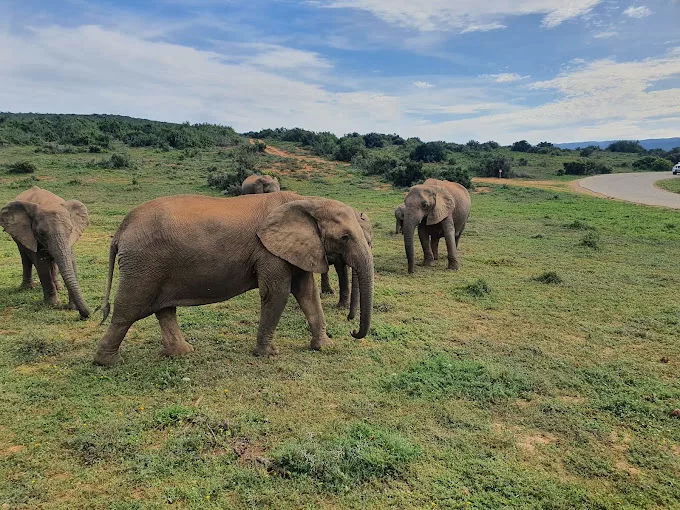
Majestic Elephants
The park is perhaps best known for its elephants. With a population numbering in the hundreds, these gentle giants roam freely across the park. Visitors have the opportunity to witness these magnificent creatures up close, observing their social interactions, feeding habits, and the adorable antics of elephant calves. The park offers guided safaris, allowing guests to experience the thrill of encountering elephants in their natural habitat.
Diverse Wildlife
While elephants steal the spotlight, Addo Elephant National Park is also home to a diverse range of other wildlife. Lions, buffaloes, zebras, and various antelope species are just a few of the animals that call the park home. Bird enthusiasts will be delighted by the park’s avian residents, including raptors, waterbirds, and vibrant songbirds.
The park is home to the largest population of elephants in South Africa. There are over 600 elephants in the park.
The park is also home to a significant population of rhinos. There are over 48 black rhinos in the park.
The park is also home to a large population of buffaloes. There are over 400 buffaloes in the park.
The park is also home to a number of other animals, including lions, leopards, antelope, giraffes, zebras, and wildebeests.
Endangered species
Addo Elephant National Park is home to a number of endangered species, including the black rhinoceros and the southern right whale.
The black rhinoceros is one of the most endangered animals in the world. There are only around 5,000 black rhinos left in the wild.
The southern right whale is also an endangered species. There are only around 60,000 southern right whales left in the world.
Tourism
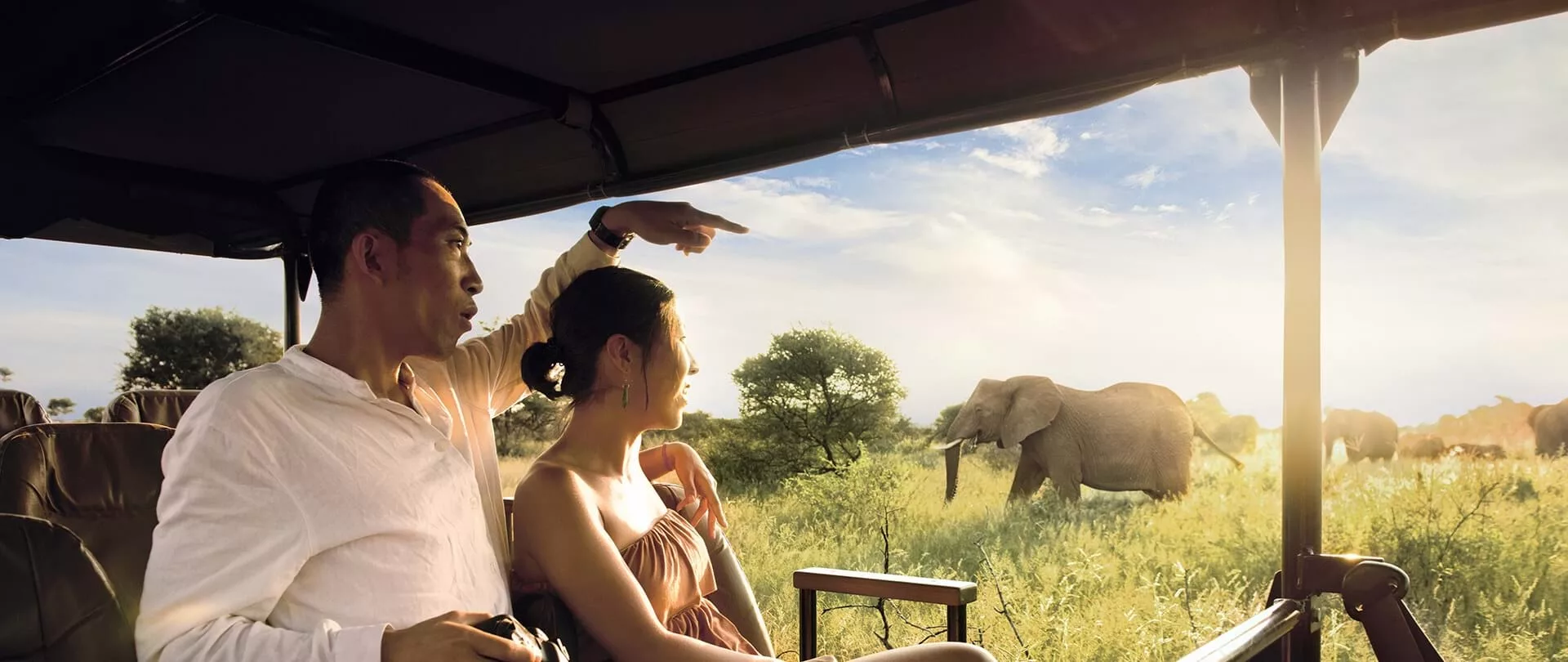
Addo Elephant National Park is a popular tourist destination, with over 300,000 visitors per year.
Visitors can enjoy a variety of activities in the park, including game drives, hiking, and bird watching.
Game drives are the most popular activity in the park. Game drives allow visitors to see a variety of animals in their natural habitat.
Hiking is another popular activity in the park. There are a number of hiking trails in the park, ranging from easy to challenging.
Bird watching is also a popular activity in the park. The park is home to over 300 species of birds.
Addo's Big Seven
In addition to the traditional Big Five (lion, leopard, rhinoceros, elephant, and Cape buffalo), Addo Elephant National Park proudly boasts the title of the “Big Seven.” The marine section of the park extends to the coastline, where southern right whales and great white sharks can be spotted. This unique feature sets Addo apart, offering a comprehensive safari experience that includes both land and marine life.

The Coastal Extension
The park’s coastal extension provides an opportunity for visitors to witness the synergy between the land and the ocean. Whale watching and marine safaris unveil a different dimension of the region’s rich biodiversity. The sight of majestic whales breaching against the backdrop of the ocean is a spectacle that adds to the allure of Addo Elephant National Park.
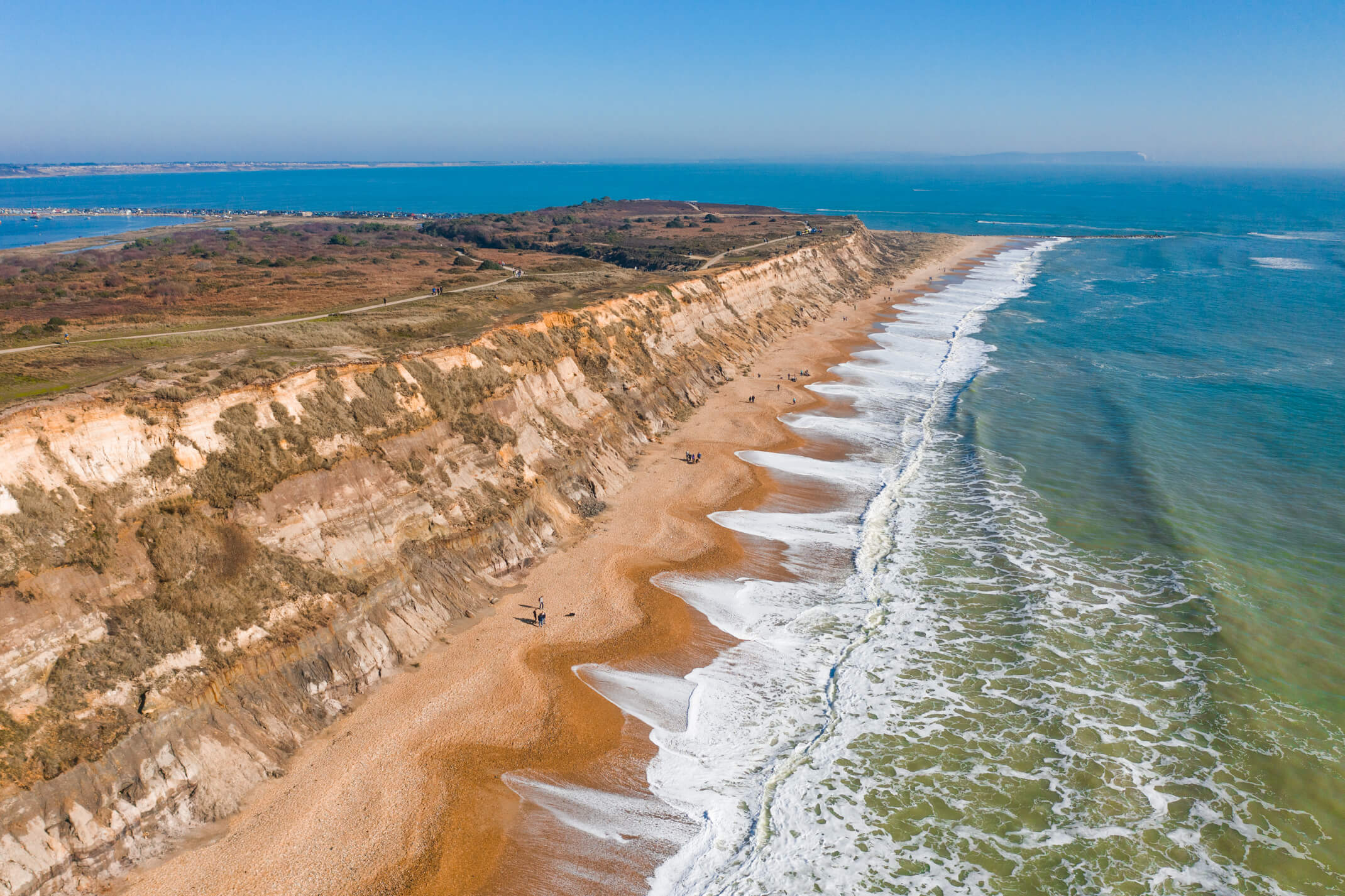
Birdwatcher's Paradise
Bird enthusiasts will find themselves in paradise as Addo is home to over 400 bird species. From the elegant secretary bird to the vibrant lilac-breasted roller, the park’s diverse habitats offer a haven for a wide array of feathered inhabitants. Birdwatching tours and hides strategically placed throughout the park provide optimal viewing opportunities.
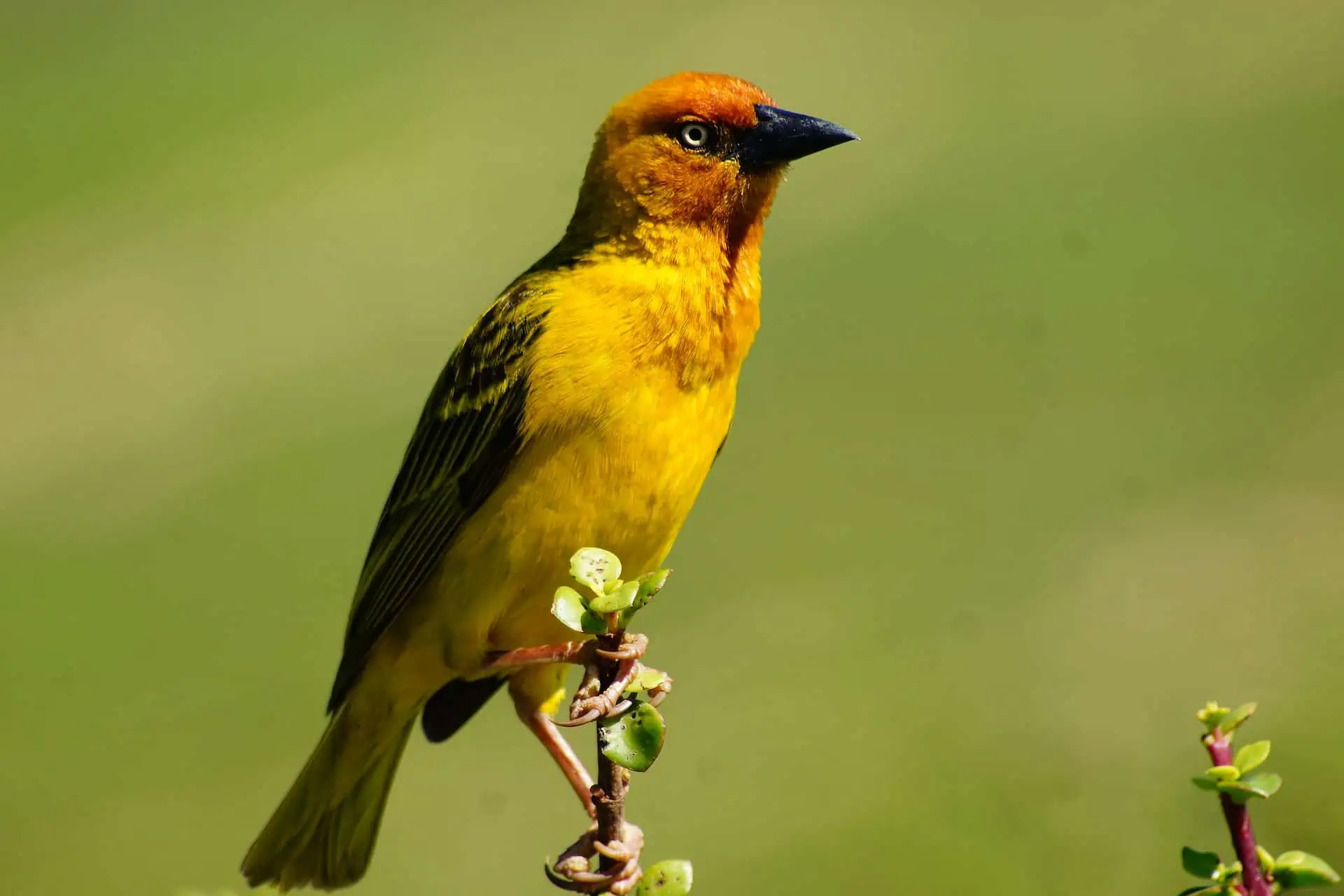
Seasonal Highlights
The park’s beauty evolves throughout the seasons, with each offering its own unique highlights. The dry winter months concentrate wildlife around waterholes, providing excellent game viewing opportunities. Spring brings a burst of color as flowers bloom, creating a picturesque landscape. Summer showcases the park’s lush greenery, and the occasional thunderstorm adds drama to the scenery.
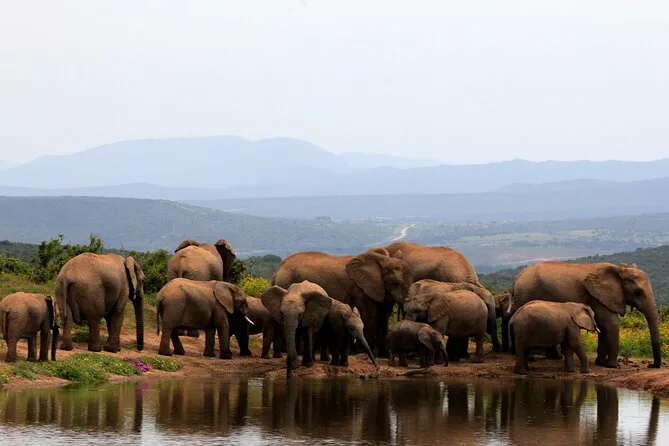
Responsible Tourism
Addo Elephant National Park encourages responsible tourism practices. Visitors are urged to respect the park’s rules and guidelines, such as maintaining a safe distance from wildlife and adhering to ethical photography practices. By minimizing their environmental impact, visitors play a crucial role in preserving the park for future generations.

Adventure Awaits
For those seeking an extra dose of adventure, the park offers a range of activities. Guided game drives, horseback safaris, and hiking trails provide different perspectives of the park’s beauty. Sunset drives offer a chance to witness the changing colors of the landscape as the day comes to an end. Camping facilities within the park allow visitors to immerse themselves in the sounds of the wilderness.
Conservation Success
Addo Elephant National Park stands as a testament to the success of conservation efforts in South Africa. The park has not only preserved the natural habitat and its inhabitants but has also contributed to the growth of endangered species. Through various initiatives, the park continues to play a vital role in the protection of biodiversity.
Conservation and Community Involvement
One of the notable aspects of Addo Elephant National Park is its commitment to conservation and community involvement. The park actively engages local communities in conservation efforts, recognizing the importance of sustainable practices. Educational programs, community outreach, and employment opportunities contribute to the park’s positive impact on the surrounding areas.
Practical Information for Your Addo Adventure
Getting There
Addo Elephant National Park is conveniently located in the Eastern Cape, making it accessible by various means of transportation.
By Car: If you’re driving, the park is approximately an hour’s drive from Port Elizabeth. The well-maintained road network allows for a scenic journey, and the park has multiple entrances, each with its unique charm.
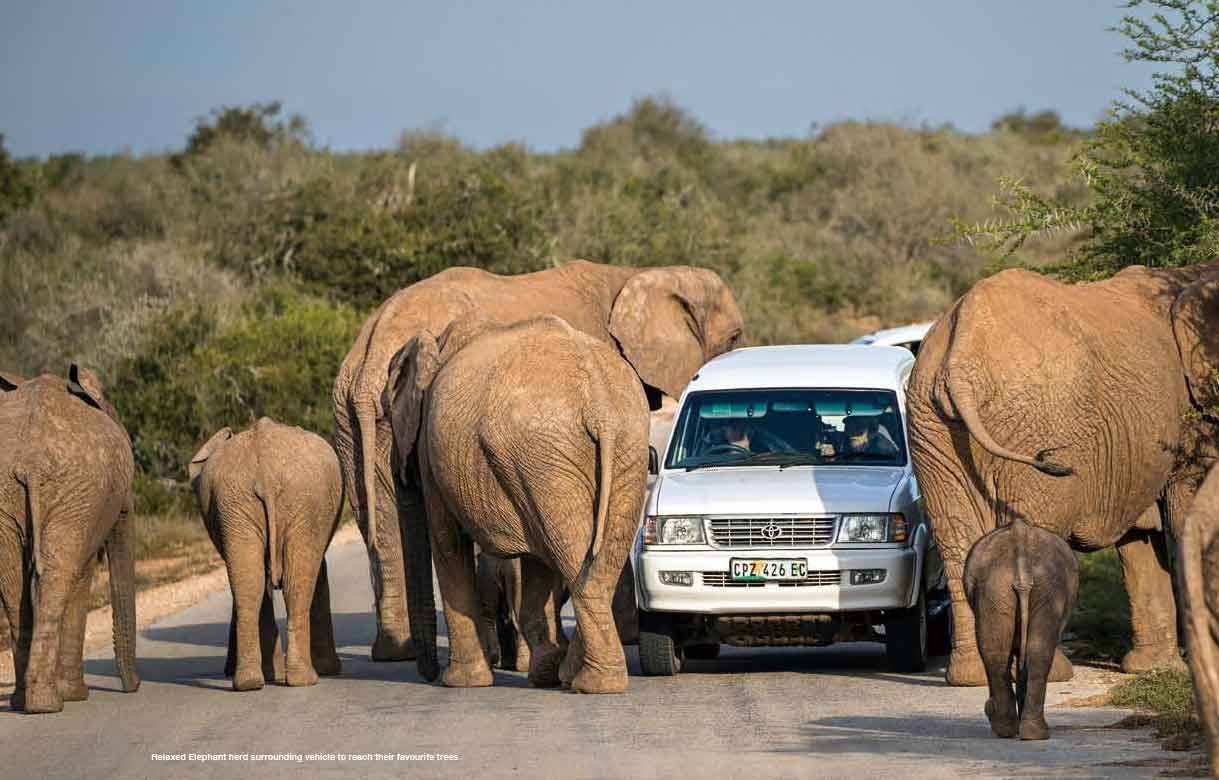
By Air: The nearest major airport is Port Elizabeth International Airport, offering both domestic and limited international flights. Car rental services are available at the airport for a seamless transition to the park.

Accommodation
Addo Elephant National Park provides a range of accommodation options, catering to different preferences.
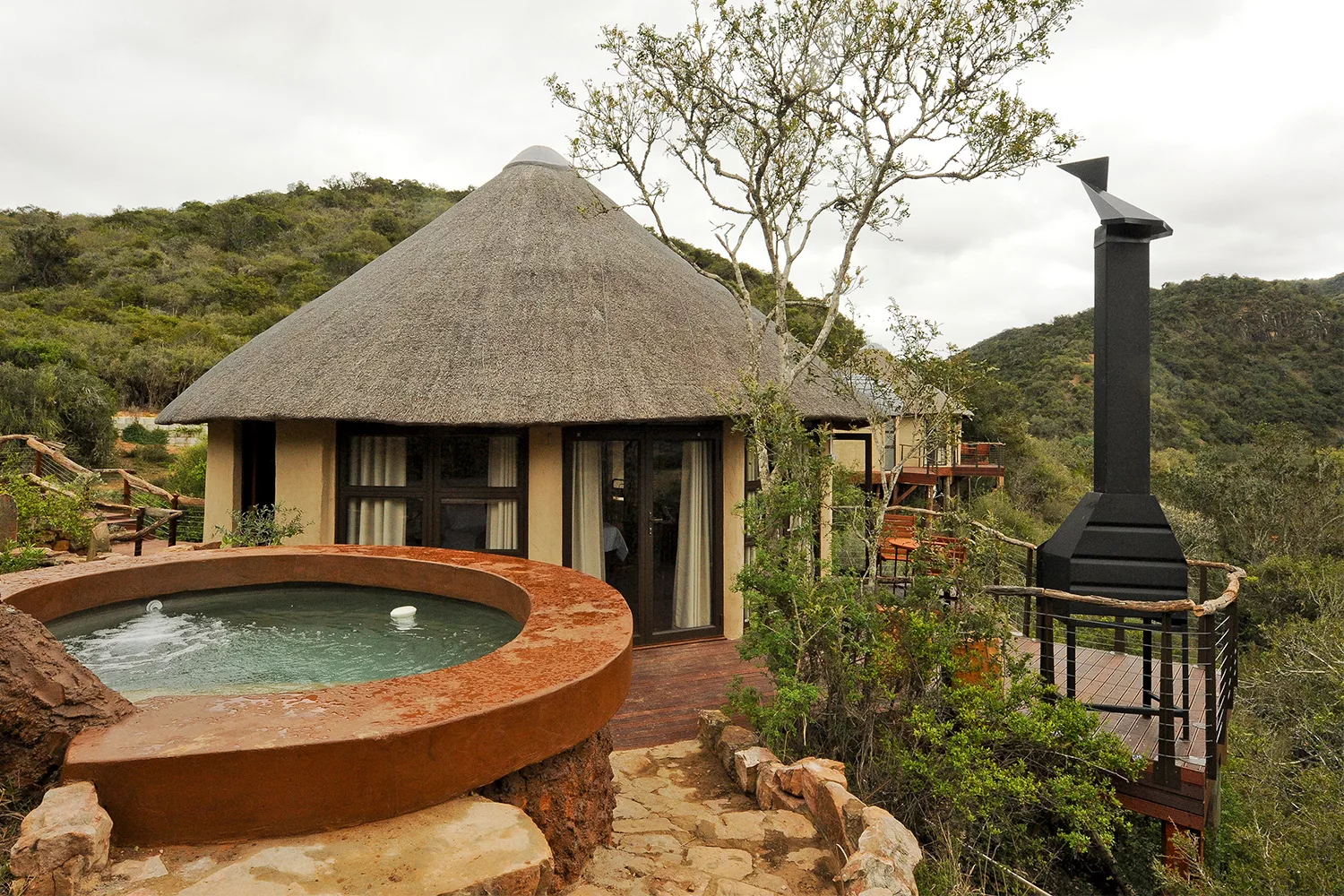
Rest Camps: The park features several rest camps, each offering a unique atmosphere. From family-friendly camps with basic amenities to more luxurious options, there’s something for every traveler.
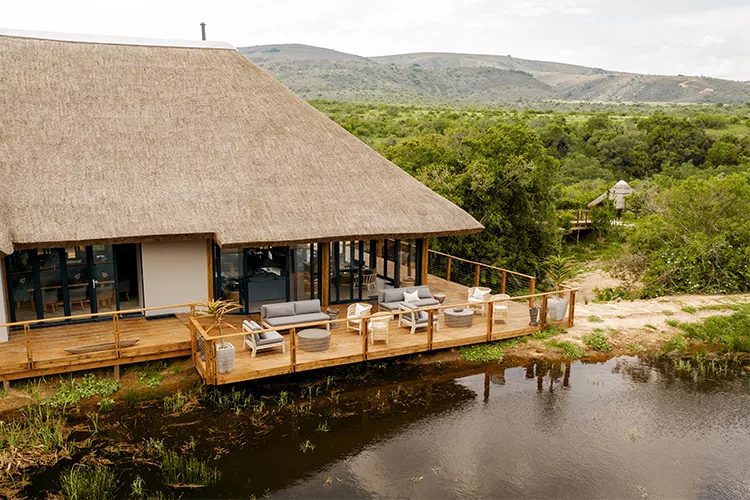
Private Lodges: For those seeking a more exclusive experience, private lodges in and around the park provide a blend of luxury and immersion in nature.
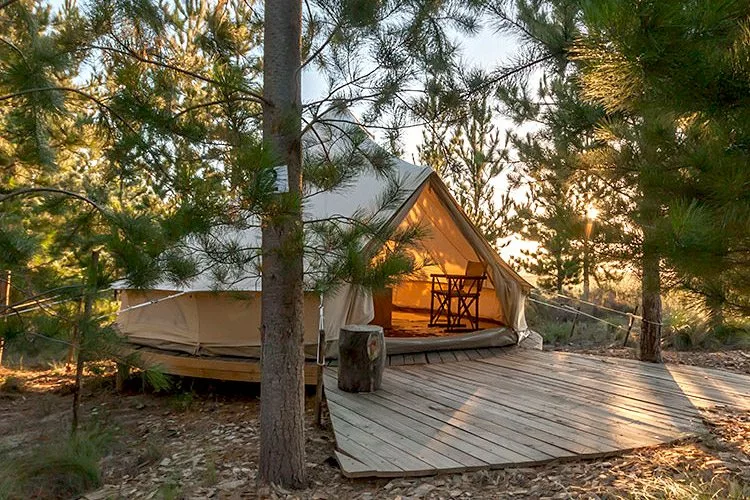
Camping: Camping enthusiasts can enjoy the thrill of sleeping under the stars at designated campsites within the park. Facilities vary, with some offering basic amenities and others providing a more comprehensive camping experience.
Activities and Tours
Addo Elephant National Park offers a plethora of activities to suit diverse interests.
Game Drives: Guided game drives led by experienced rangers are the quintessential way to explore the park. Morning and sunset drives provide different perspectives of the wildlife and landscape.
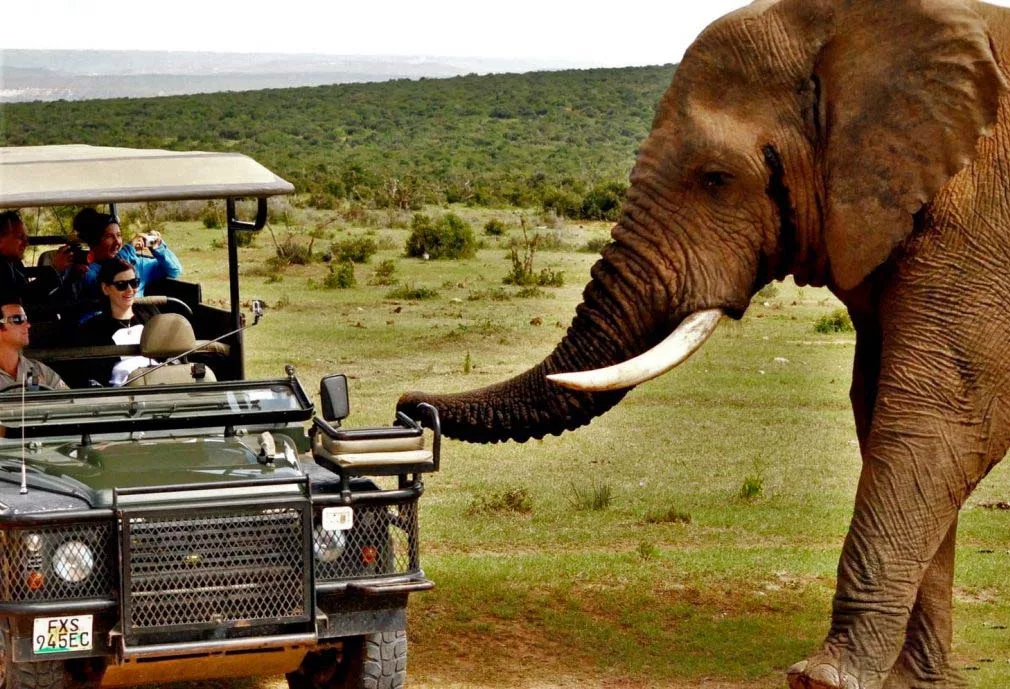
Self-Drive Safaris: The park’s well-marked roads make it easy for visitors to embark on self-drive safaris. Maps and information are available at the park’s entrance.

Hiking Trails: Nature lovers can explore the park on foot by choosing from various hiking trails, ranging from short walks to more extended excursions.
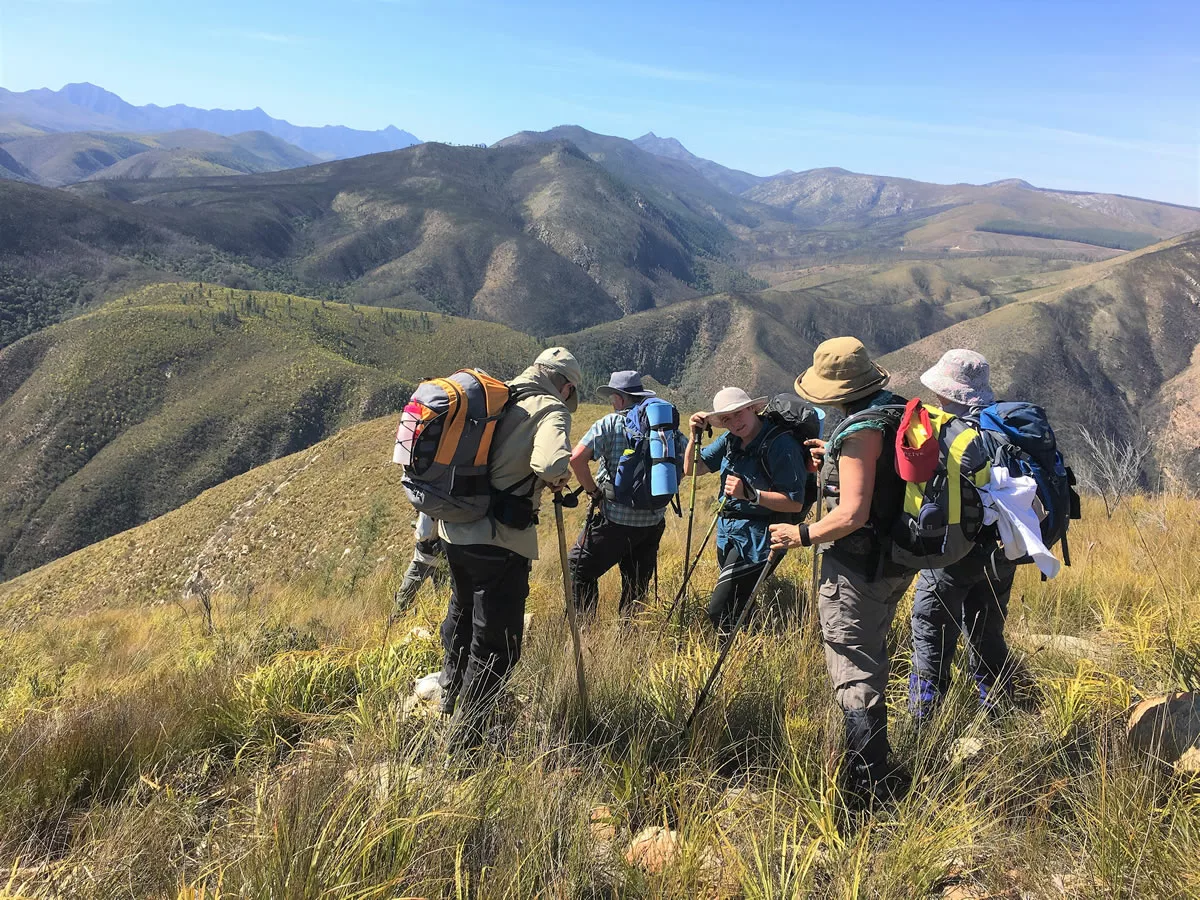
Marine Safaris: Don’t miss the chance to venture into the coastal extension for marine safaris, offering encounters with whales and other sea life.
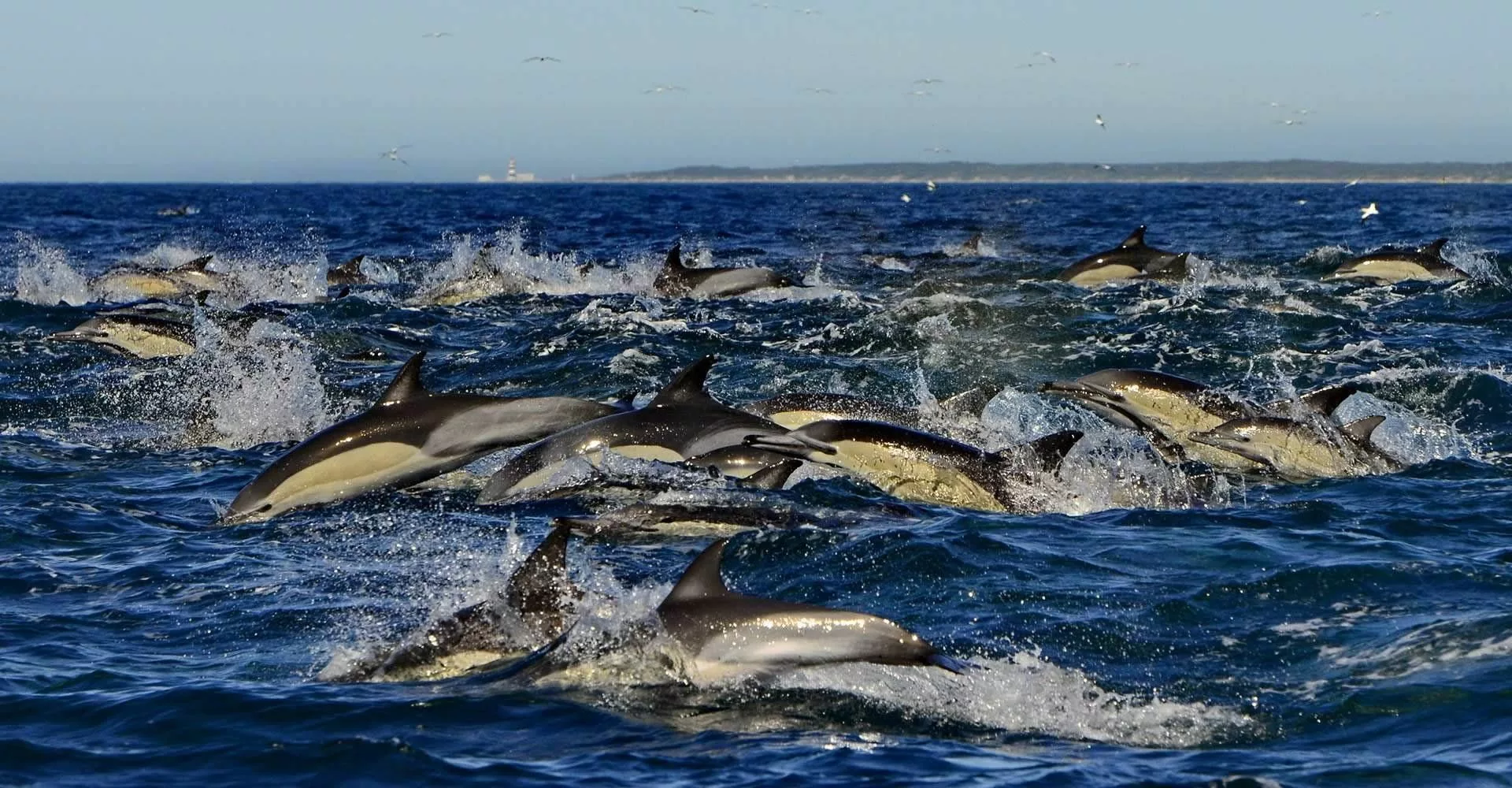
Park Regulations
To ensure a safe and enjoyable visit, familiarize yourself with the park’s regulations:
Speed Limits: Adhere to speed limits within the park to protect both visitors and wildlife.
Animal Interaction: Maintain a safe distance from wildlife. Elephants, in particular, should be given ample space.
Guided Tours: Consider joining guided tours for an informative and enriching experience. Knowledgeable guides enhance your understanding of the park’s ecology.
Responsible Practices: Embrace responsible tourism by avoiding littering, respecting the environment, and minimizing your ecological footprint.
Essential Tips
Binoculars: Bring a pair of binoculars for optimal wildlife viewing, especially for birdwatching.
Camera Gear: Pack your camera and/or smartphone for capturing the breathtaking landscapes and diverse wildlife.
Weather Considerations: Be prepared for varying weather conditions. Evenings can be cool, so layering is advisable.
Booking in Advance: Especially during peak seasons, consider booking accommodations and activities in advance to secure your preferred options.
Plan Your Visit
- Best Time to Visit: The park is a year-round destination, but the dry winter months (May to September) are considered ideal for game viewing.
- Entry Fees: Fees vary for South African citizens, SADC (Southern African Development Community) citizens, and international visitors. Check the official park website for the latest information.
- Guided Tours: Consider joining guided tours led by knowledgeable rangers to enhance your safari experience.
Addo Elephant National Park, with its wealth of wildlife and stunning landscapes, promises an unforgettable adventure. By preparing adequately and embracing responsible tourism practices, you’ll not only enjoy your visit but also contribute to the preservation of this remarkable natural treasure. Now, armed with practical information, set forth and immerse yourself in the wonders of Addo Elephant National Park.





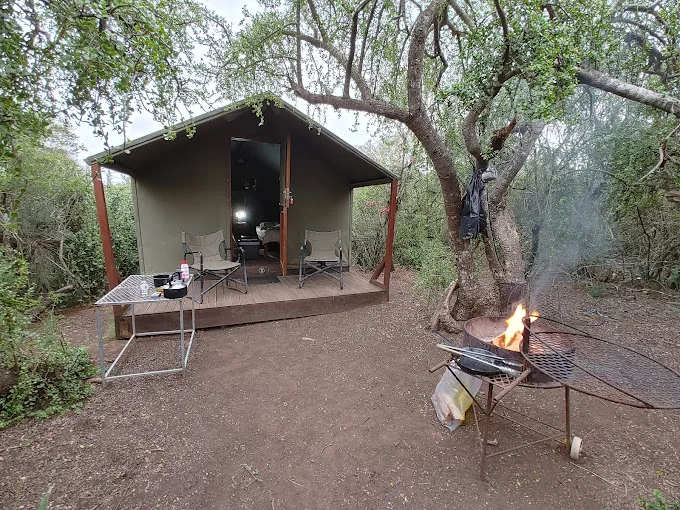



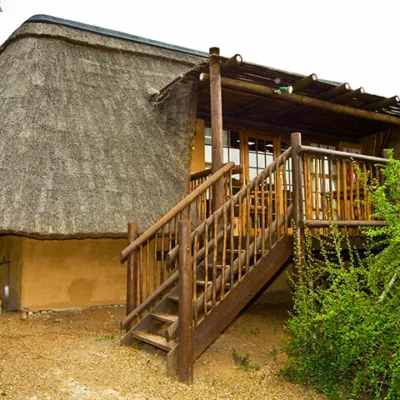
No Comment! Be the first one.